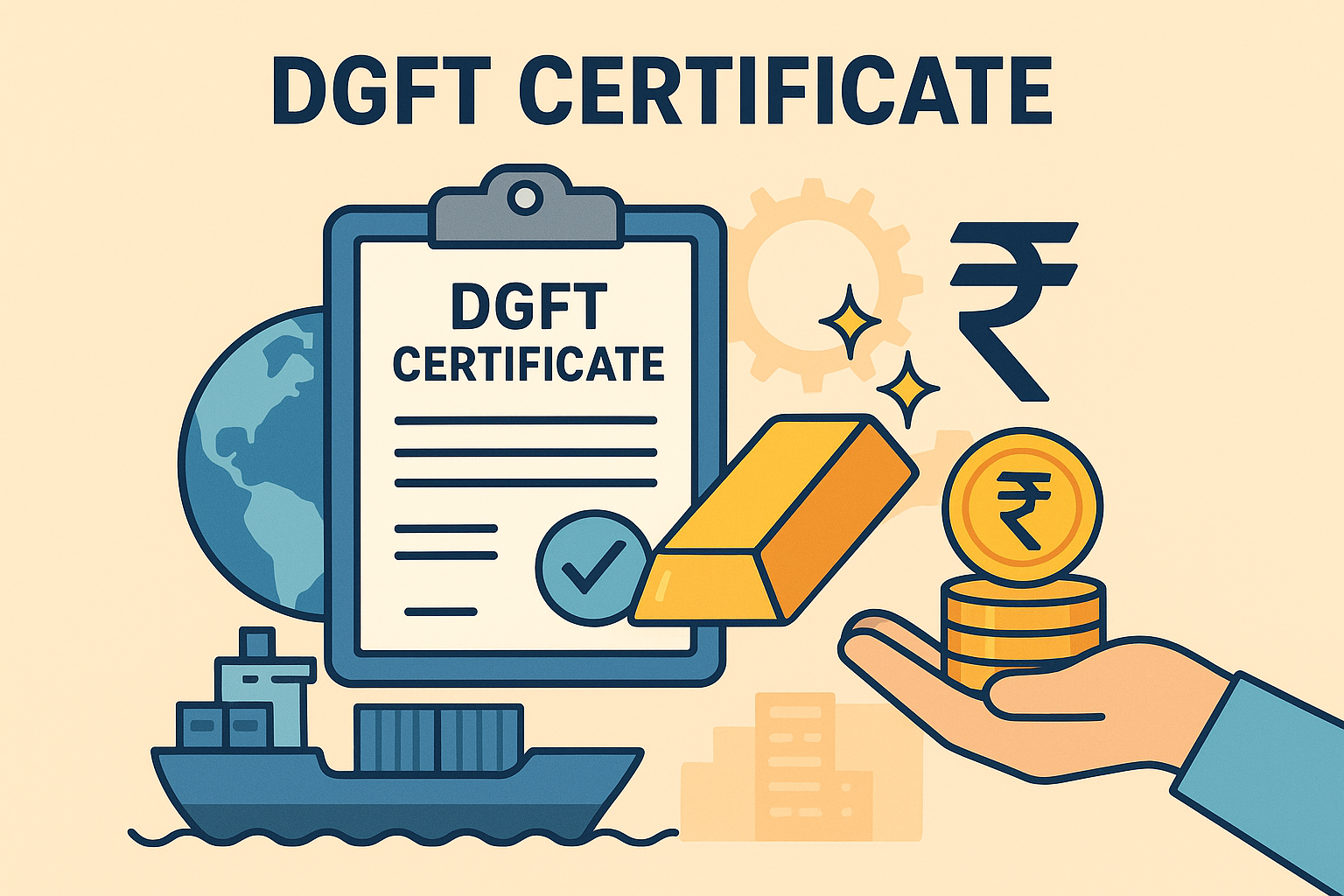DGFT Registration & License Guide 2025: A Complete Resource for Importers & Exporters

When starting or expanding an import–export business in India, the procedures managed by the DGFT (Directorate General of Foreign Trade) often become essential for compliance, licensing, and smooth cross-border transactions. Whether a business needs approvals, permissions, or trade facilitation support, understanding the DGFT ecosystem makes the process easier, faster, and more compliant with Indian foreign trade regulations.
This guide covers the basics of DGFT functions, the application process for various certificates, required documents, and the correct way to apply through DGFT online systems used across India. It also explains important compliance elements, including the DGFT restricted items list for export, helping businesses stay within regulatory boundaries.
What Is DGFT and Why It Matters?
The Directorate General of Foreign Trade is the government body responsible for regulating international trade in India. It issues import–export authorizations, maintains national trade policies, and ensures exporters and importers follow the correct procedures.
Businesses rely on DGFT for:
-
Export promotion schemes
-
Licensing and certification
-
Monitoring restricted items
-
Ensuring compliance with India’s Foreign Trade Policy
-
Facilitating international market access
Understanding DGFT guidelines helps companies avoid penalties, delays, and shipment issues.
What Is DGFT Registration?
Every importer or exporter must complete DGFT registration to interact with India’s international trade framework. This registration links the business to government systems, enabling access to export promotion schemes, trade certificates, and license applications.
DGFT registration also connects businesses to the Importer Exporter Code (IEC), Advance Authorizations, EPCG schemes, and other export incentives.
What Is a DGFT Certificate?
A DGFT certificate is an official document issued to eligible businesses after evaluating their application for export or import permissions. These certificates may include:
-
Advance Authorization
-
Export Promotion Capital Goods (EPCG)
-
Status Holder Certificate
-
Restricted Item Export Approval
-
Duty Credit Scrips
Businesses require these certificates to ship goods that fall under regulated or incentivized categories.
What Is a DGFT License?
A DGFT license is required when a product cannot be exported or imported freely without special permission. Licensing ensures the goods comply with India’s Foreign Trade Policy (FTP).
Examples include:
-
Chemicals
-
Electronics
-
Sensitive agricultural items
-
Defense-related materials
-
Dual-use products
Licensing also applies when businesses want to expand into regulated markets with strict compliance requirements.
How to Apply for DGFT Services Through DGFT Online Portal
The updated DGFT portal offers a simplified digital interface that supports faster applications, automated document validations, and real-time tracking.
Step-by-Step Process
-
Visit the DGFT online portal.
-
Register using your business credentials and mobile verification.
-
Log in to your dashboard.
-
Choose the service (certificate, license, authorization, etc.).
-
Upload the required documents.
-
Provide product details and HSN information.
-
Pay the applicable fees online.
-
Submit your application for verification.
-
Track your application status under the “My Dashboard” section.
-
Download your certificate or license once approved.
Understanding the DGFT Restricted Items List for Export
Certain products cannot be freely exported from India due to policy, security, or environmental concerns. These products appear on the DGFT restricted items list for export, and require special permissions or a DGFT license to ship.
Common restricted categories include:
-
Agricultural and food products
-
Biological materials
-
Industrial machinery
-
Defense components
-
Hazardous chemicals
-
Electronic items with dual-use technology
Businesses must carefully check this list before shipping to avoid shipment seizures, penalties, or compliance violations.
Benefits of Compliance With DGFT Regulations
-
Smooth international shipping
-
Eligibility for export incentives
-
Reduced customs delays
-
Avoidance of penalties or shipment holds
-
Stronger global credibility
-
Access to foreign trade policy benefits
-
Eligibility to claim duty exemptions or scrips
DGFT compliance is not optional—it protects businesses from legal and financial risks.
Conclusion
Understanding DGFT processes, certificates, licensing norms, and restricted item regulations allows businesses to operate confidently in international markets. Whether applying for a DGFT certificate, obtaining a DGFT license, or completing DGFT registration, following the correct digital process ensures fast approvals and compliance with India’s Foreign Trade Policy. With DGFT’s online portal, trade transactions are becoming more transparent, faster, and easier for exporters and importers across India.
FAQs
1. What is DGFT?
DGFT is the government body responsible for regulating and promoting India’s foreign trade activities.
2. How do I apply for DGFT registration?
You can apply through the DGFT online portal by submitting required documents and business details.
3. Who needs a DGFT license?
Businesses exporting or importing restricted or regulated items require a DGFT license before shipment.
4. Where can I check the restricted items list?
The DGFT restricted items list for export is available on the DGFT portal under the “Export Policy” section.
- Art
- Causes
- Crafts
- Dance
- Drinks
- Film
- Fitness
- Food
- Oyunlar
- Gardening
- Health
- Home
- Literature
- Music
- Networking
- Other
- Party
- Religion
- Shopping
- Sports
- Theater
- Wellness



